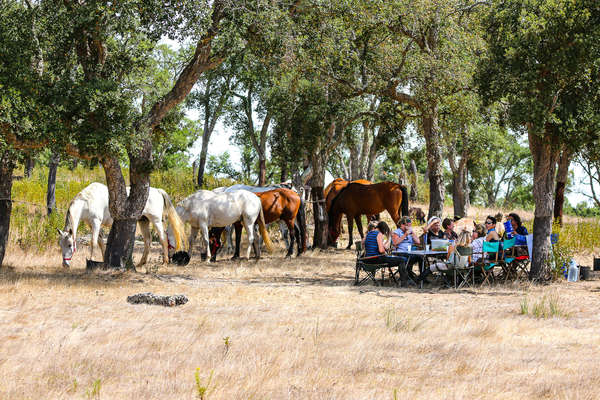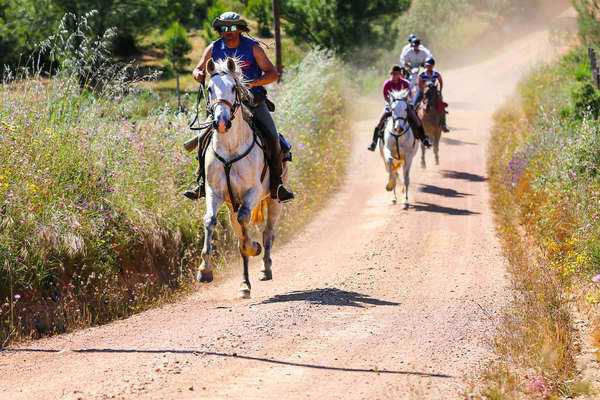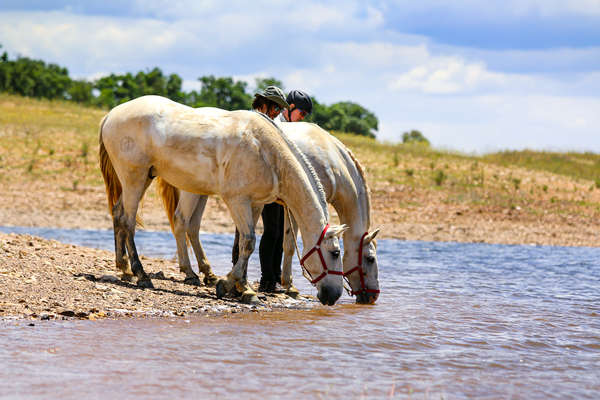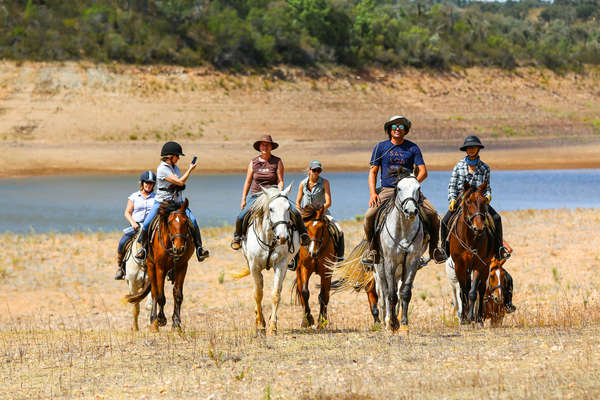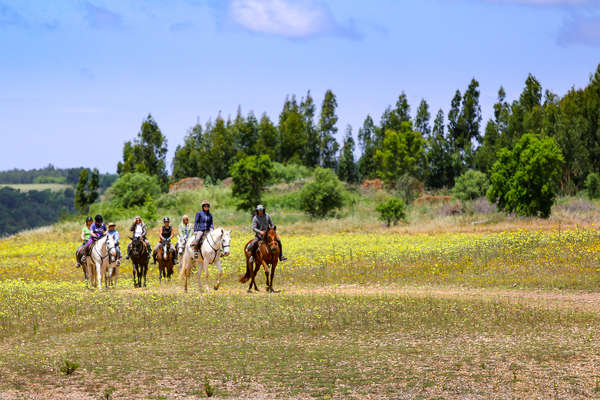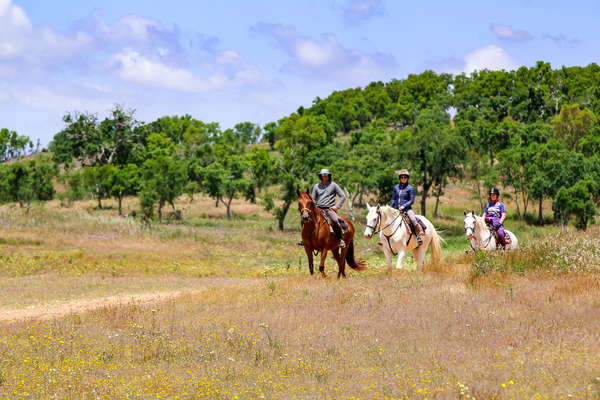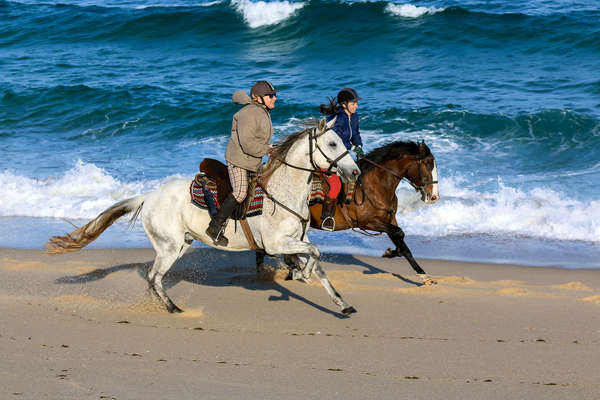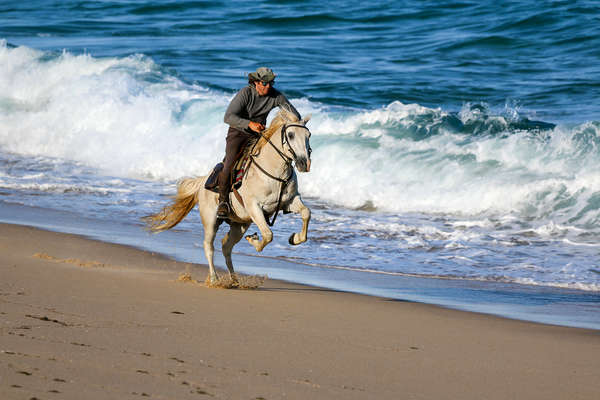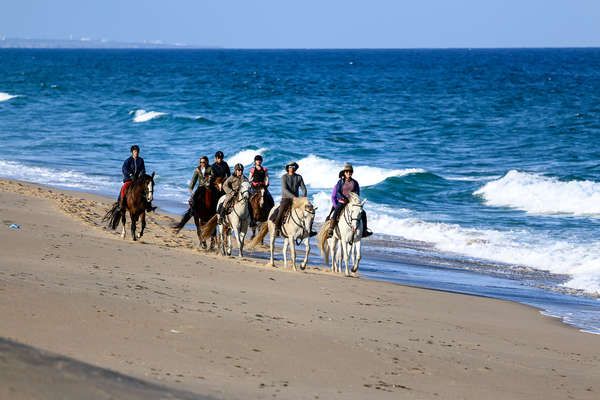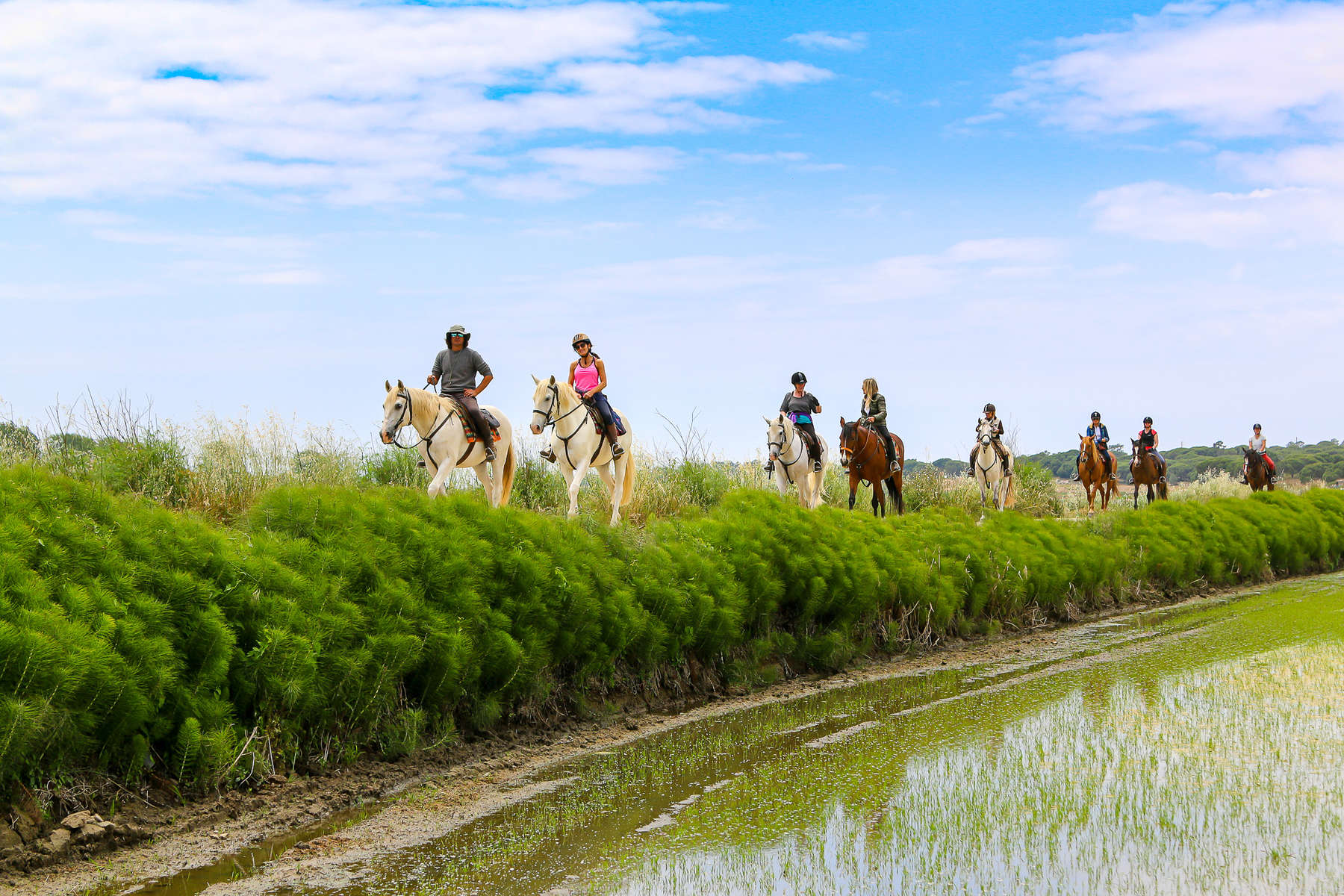
From the horse’s mouth
Itinerary
Highlights
- A linear trail so you end in a different place to where you began!
- The trail runs in both directions so you can choose whether to ride south to north or north to south
- The chance to canter/gallop down a deserted beach (please note that in September this may be at dawn)
- Convivial and friendly guide
- Comfortable and unique accommodation - converted farmhouses and quality hotels
Dates & prices
Price details
- Rides are confirmed for a minimum of 5 riders and a usual maximum of 10 riders, plus your guide
- Please note: the ride will also confirm for 3-4 riders on payment of a supplement. This is 25% of the rate for 3 riders, 10% for 4 riders. Once the group has reached 5 people, we will remove this supplement from your invoice and refund you if you have already paid it.
- If you sign up to the ride as solo rider and there are no other riders likely to share your room, you will be charged a single room supplement of approx. €600/£510/$645. You will then be reimbursed if a sharer is found for you at a later date.
- Transfers payable locally (€100 per person, in cash) as long as you arrive before 16:30 (on time for your 5:30 pm transfer) and depart after midday. If you wish to book flights outside of these times then a private transfer may be arranged (on request) but is a taxi at your own cost.
- Competent children aged 10 and over can join the ride as long as they are comfortable riding horses (there are no ponies) and are accompanied by an adult. There is no discount for children
- Non-riders are welcome but no activities are provided - they can travel in the support vehicle and meet the group for lunch, or relax at the hotels. The rate for a non-rider is €1090/£920/$1170.
- All meals are included as well as drinks during picnic lunches. All evening drinks are payable locally to the hotels/restaurants. It is usual that those who wish to drink wine will split the bill - this will be discussed with your guide on day one.
- Please note that this trail also runs in reverse. Some dates start in the north and heads south, whereas other dates start in the south and returns north. Less confident riders are advised to choose the trail which starts in the south and heads north so that they have an opportunity to get used to their horse before riding on the beach. Please contact us and we will check for you.
Please Note
The itinerary may be modified at anytime for security reasons, meteorological or events beyond our control such as blocked roads, rivers in flood, drought, strikes and local holidays. Equus Journeys, our local partners and their local guides will always strive to find the best solution and will alter the itinerary as needed.
The names of the hotels and accommodation are given for information only and depending on availability, they may be modified without notice and replaced by another of a similar standard.
Price includes
Support Team
Logistic
1 cook
1 assistant cook
1 horse equipped with saddle and bridle
Inland transports
Accommodation
Meals
Extra equipment
Price doesn't include
Meals
Meals on day 1 and 8 depending on your flights
Accommodation
Transport
Return airport transfers payable locally
Extra
Tips to local team
Insurance
Optional
Accommodation
Equestrian info
Horses
Guide & local team
Minimum riding ability
Minimum riding ability
There is a rider weight limit of 85kgs/13.3 st/187 lb
Pace
Tacking ability and participation
Trip conditions and Requested experience
Equestrian equipment
Saddlebags are not provided.
We recommend all our riders to wear a helmet to the correct standard and you should bring your own to ensure a proper fit.
Travel info
Comfort
Meals
Evening meals are in the hotel and usually the dish of the day - typical Portugese cuisine and all fresh and locally produced. Drinks are payable locally.
Climate
Winter: 12 - 15c
Spring: 20 - 25c
Summer: 30 - 35c
Autumn: 15 - 20c
There is rarely rain during the summer months, but rain is common in winter and can occur in spring also.
Tips
Packing list
- Equus Journeys strongly recommend take your own helmet to ensure a correct fit.
- Sunhat for when not riding
- Sunglasses - with a cord attached so they don't fly off when riding
- Buff or bandana for protecting your neck and face from the sun and dust
Upper body
- Long sleeved shirts to provide protection from the sun
- T-shirts
- Lightweight fleece or jumper
- Warm polar fleece or equivalent
- Waterproof jacket - rain can be difficult to predict and it's better to be prepared.
Legs
- Lightweight, comfortable riding trousers or jodhpurs - we recommend riding in them at home before taking them on holiday to ensure they don't rub
- Waterproof over trousers
- Casual clothes for the evenings (jeans or walking trousers)
Hands and Feet
- Comfortable riding boots. We recommend short boots with half chaps but you may wish to take long chaps or long boots.
- Lightweight shoes for the evenings
- Several pairs of socks
- Gloves - your hands are particularly exposed to the sun, wind or rain whilst riding
Nightwear
- Pyjamas etc
Our Recommendations
- Backpacks cannot be worn whilst riding. We recommend a small bumbag or a waistcoat with pockets so that you can carry small items with you during the day (camera, sunscreen, lipbalm etc)
- We recommend travelling in your riding boots and carrying your hat and some riding clothes in your hand luggage - then if your luggage goes astray you are still able to ride!
Other useful items
- Swimsuit - there are pools on some nights
- Small backpack for accessing items required during the day (carried by support crew)
- Camera and high capacity memory card. Spare battery
- Bumbag for carrying your camera and small items whilst riding
- Water bottle (2 litres or 2 x 1 litre)
- Ear plugs (for light sleepers)
In your luggage
- Any liquids, such as shampoo, moisturiser, deodorant unless they are less than 100ml and all bottles can fit in a small, clear, plastic ziplock bag.
- Swiss army knife or equivalent
In your hand luggage
- Any valuables, such as your camera, ipod, ipad etc.
- Your riding hat
Medical kit
- Sunscreen and lip balm - should be high factor
- Insect repellent
- Any medication you regularly take
- Blister plasters in case of any rubs
- Antiseptic cream, plasters, aspirin, anti-histamine, insect-bite salve etc...
- Spare prescription glasses/contact lenses
- Eye drops
- Imodium or similar anti-diarrhoea medication
- Re-hydration sachets
- Antiseptic wipes
- Handwash gel
Sustainable tourism
- Travel light. It's a little known fact, but the lighter you pack, the better for the environment as heavy bags will produce higher emissions (when flying a plane or driving a car!).
- Reduce plastic waste. Take your favorite reusable bottle with you. Avoid single-use bags, cups, or straws.
- Preserve nature. Always take your rubbish with you during the ride and recycle them. Leave all the flowers or plants as you found them, and never get too close when observing wildlife. Make sure to use eco-friendly products such as body wash or laundry detergent (if camping) to protect both your skin and the environment.
- Choose your experiences carefully. Respect animal life by not participating in any activities that abuse wild animals (shows, elephant rides, etc.).
- Support local populations. Buy local handicrafts, be respectful of customs, and learn about the culture of local communities.
- Share! Raise awareness among your family and friends about sustainable tourism.
Did you know?
Did you know?
Port wine (Vinho do Porto) or more simply "Port" is a Portugese fortified wine produced exclusively in the Douro valley in northern Portugal.
Traditionally a sweet red wine which is often served after dinner, there are actually many varities, including white port which is usually served chilled before a meal and is more similar to sherry.
Port, like wine, is made from grapes, but is fortified by the addition of a neutral grape spirit called aguardente which stops the fermentation process, leaving a higher sugar and alcohol content. The spirit is stored and aged in barrels:
Ruby Port - the most well known and widely produced is stored in concrete or stainless steel barrels to prevent oxidisation and retain the rich red colour.
Tawny Port is aged in wood barrels to allow oxidation - this mellows the colour to golden-brown and adds a nutty flavour.
White Port is made from white grapes rather than red, but storage in wood barrels can darken the colour so that it's difficult to tell it apart from a tawny!
It is likely that you will be able to try port whilst on your riding holiday in Portugal, and you can buy really good quality ports for a fraction of the price you can find them in the UK. Your guide will advise you if you are keen to take some bottles home...

